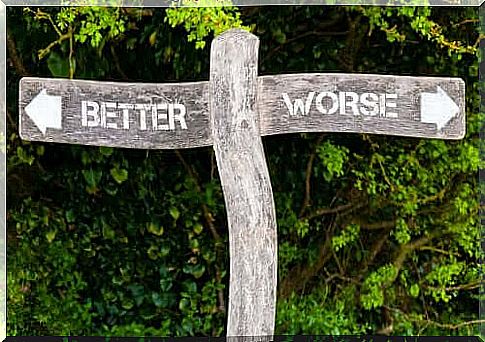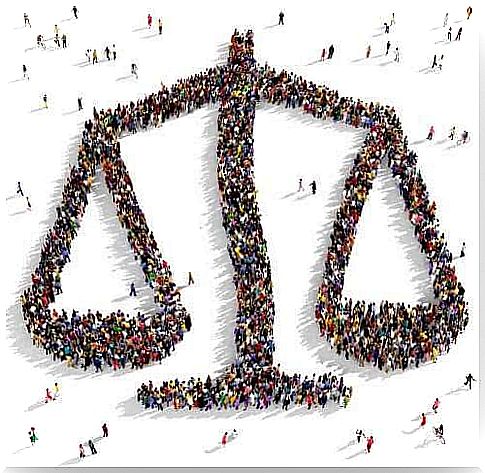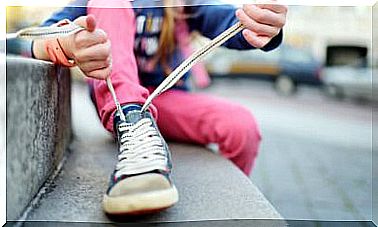What Effect Do Social Comparisons Have On Us?

We are constantly confronted with the people around us and who belong to our social networks, with public figures and even with fictional ones. Normally, the general opinion on social comparisons tends to be negative, prompting us to avoid them as much as possible.
But what if we told you that social comparisons are part of the character of the human being?
Do we need to compare ourselves with others?
Leon Festinger, author of the theory of social comparison and cognitive dissonance, says that we all need to test our opinions and our skills. In other words, we need to know that we are consistent individuals and that our choices and opinions are valid.
According to the psychologist Joel Feliu, we all initiate a process of confrontation with other people, in order to obtain some certainties, finding ourselves unable to have another means to verify the validity of our opinions and skills.

Furthermore, even when the options available to us are easy and the choice seems clear, we often tend to place our trust in the opinions of others. In other words, we trust their opinion more than ours to know what to say, do, or think.
Nonetheless, Feliu argues that the comparisons are not random, but that we have a tendency to make them with people we consider to be more like us. Consequently, the more we recognize a certain affinity with the other person, the more we trust them to evaluate our opinions and abilities.
All this reflection leads us to the concept of group uniformity. The fact that we need reliable opinions from those we consider similar to us translates into a desire for group uniformity. In other words, in the desire to want to be more like others and that others look more like us.
Cognitive dissonance
What happens when our behaviors and opinions do not coincide with those of the people we consider similar to us? According to Festinger, when social comparisons show dissonances, cognitive dissonance is produced.
This dissonance would cause us a psychological malaise, which in turn would lead us to make changes in our decisions, opinions, behaviors and, ultimately (and unknowingly), in our cognitive system.
Social Confrontations: To what extent are they harmful?
Now that we know that social comparisons are part of the human character, how does comparing ourselves with others affect us?
Comparing ourselves with others will affect us in a very different way, depending on the meaning we attribute to this comparison. How we evaluate our situation with that of another person can seriously damage our self-esteem and harm our self-concept.
On the one hand, we must understand that we all find ourselves in an absolutely unique life situation, as a result of different experiences. In other words, it means understanding that the events that took place to shape your current condition and that of the other person were very different. Associating your skills with someone else’s situation can damage your sense of self-acceptance.
On the other hand, as the saying goes “you don’t judge a book by its cover “, we must also understand that appearances can be deceiving. Doctor and wellness expert Susan Biali points out the importance of the fact that the “outer appearance” of others cannot be compared with your “inner appearance”.
With the advent of social networks, it is very common for us to compare our life with that of others, looking at their Fabebook or Instagram profile, when, after all, the only source we have are their photographs. .
Social comparisons as a means of inspiration
Each of us is a unique individual, with his own characteristics. And it is equally true that, if we continually compare ourselves with others, we are attributing to ourselves needs that are alien to us. However, there is a healthy way to use social comparisons: inspiration.

Seeing others move forward and achieve their dreams while you still have a lot left to do is really frustrating and can even generate severe anxiety. When you compare yourself to others, you turn this frustration or envy of not being able to get what they have into motivation.
For this reason, comparing with others must always be an improvement-oriented activity. Look at those people from another point of view, as a role model to follow or a goal to achieve that helps you get what you want. Analyze what they have done to get what they have and motivate yourself by saying: ” if they have succeeded, I can do it too “.









